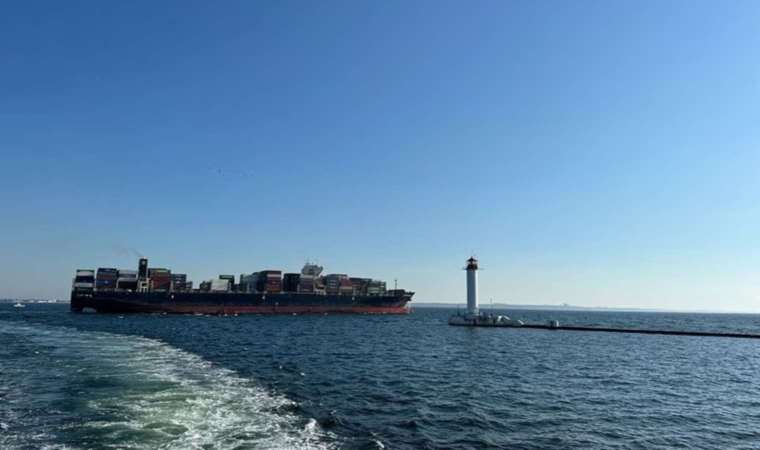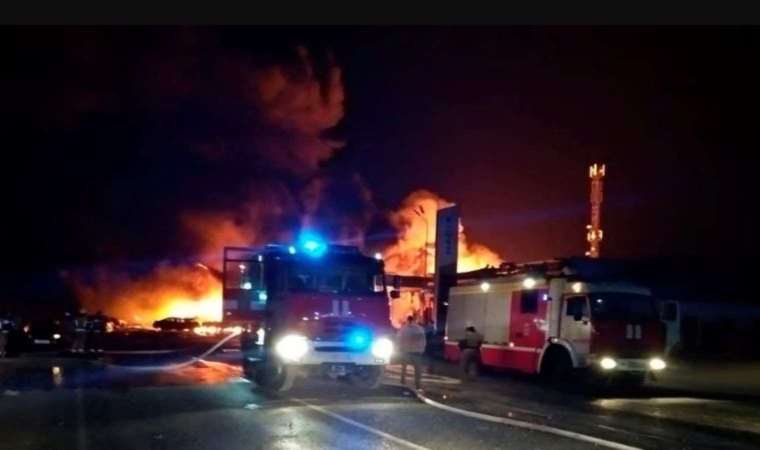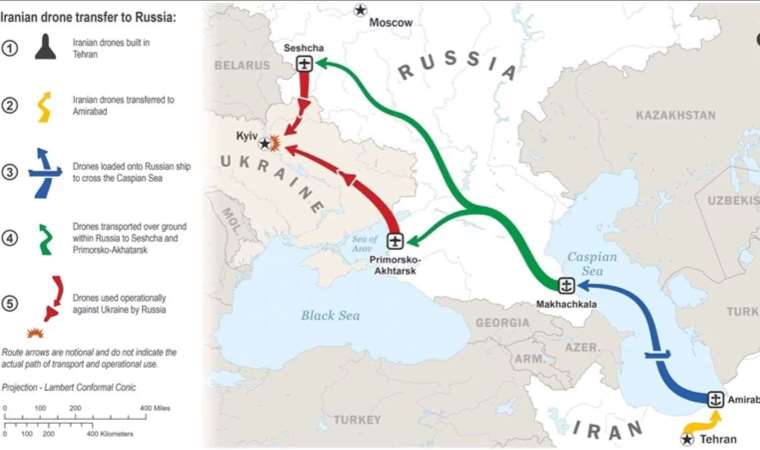In the Russian capital, five sources said authorities were considering reimposing stringent capital controls as the rouble showed the strains of Russia's invasion of its neighbour, which has brought huge military spending and Western sanctions.
The departure from Odesa of the Hong-Kong-flagged Joseph Schulte, trapped in the port since the day before Russia invaded Ukraine on Feb. 24 last year, followed the latest in a string of Russian attacks on the country's grain export infrastructure.
Overnight air strikes damaged silos and warehouses at Reni on the Danube river, a vital wartime route for food exports, Ukrainian officials said. They posted photos of destroyed storage facilities and piles of scattered grain and sunflowers.
There was no comment from Moscow. An industry source said the port was continuing operations. Benchmark Chicago wheat futures were up about 1% after the news broke on Wednesday morning, adding to a slight earlier gain as they recovered from a two-month low on Tuesday.
Russia has made regular air strikes on Ukrainian ports and grain silos since mid-July, when it pulled out of the U.N.-backed deal for Ukraine to export grain. It has threatened to treat any ships leaving Ukraine as potential military targets. On Sunday it fired warning shots at a ship travelling towards Ukraine.
Despite the threats, Ukraine last week announced a "humanitarian corridor" in the Black Sea to release cargo ships that have been trapped in its ports by a de facto Russian blockade, pledging full transparency to make clear they were serving no military purpose.
"A first vessel used the temporary corridor for merchant ships to/from the ports of Big Odesa," Deputy Prime Minister Oleksandr Kubrakov said on Facebook.
Bernhard Schulte Shipmanagement (BSM), which owns the ship jointly with a Chinese bank, confirmed that the ship was en route to Istanbul.
Kubrakov said it was carrying more than 30,000 metric tons of cargo in 2,114 containers, adding that the corridor would primarily be used to evacuate ships from the Black Sea ports of Chornomorsk, Odesa and Pivdennyi.
Moscow has not indicated whether it would respect the shipping corridor, and shipping and insurance sources have expressed concerns about safety.
Ukraine is a major grain and oilseeds exporter and the United Nations says its supplies are vital to developing countries where hunger is a growing concern. Neither Kubrakov nor the shipping company specified the cargo on board the Joseph Schulte but grain is rarely carried in containers.
BATTLEFIELD GAIN
The attacks on Ukraine's grain followed its launch of a Western-backed counteroffensive in early June to try to dislodge Russian forces the territory they occupy in the south and east.
Extensive Russian fortifications and minefields along the front line have made it hard for Ukrainian forces to break through, but they announced they had retaken another village on Wednesday, the first settlement they have declared recaptured since June 27.
"Urozhaine liberated," Deputy Defence Minister Hanna Maliar said on Telegram. "Our defenders are entrenched on the outskirts."
Russia's defence ministry did not confirm losing the settlement but said in a statement its artillery and warplanes were attacking Ukrainian forces in the Urozhaine area.
Russian military bloggers said fierce fighting raged near the village and that Russian units were trying to prevent Ukraine from strengthening its positions in Urozhaine. Reuters was not able to verify the reports.
The village's recapture would indicate Ukraine is pressing ahead with an offensive drive towards the Sea of Azov just over 90 km (55 miles) to the south, aiming to cut Russian forces occupying its southeastern coastline in half.
DANUBE PORTS
Ukraine turned to its Danube river ports after Russia pulled out of the Black Sea grain deal seeking better terms for exports of its own food and fertilizer.
The river ports, which had accounted for around a quarter of grain exports, have since become the main route out for Ukrainian grain, which is also sent on barges to Romania's Black Sea port of Constanta for shipment onwards.
Earlier this month, Russia attacked Izmail- Ukraine's main inland port across the Danube River from Romania, sending global food prices higher as it ramped up its use of force to prevent Ukraine from exporting grain.
A Russian warship on Sunday fired warning shots at a cargo ship in the southwestern Black Sea as it made its way northwards, the first time Russia has fired on merchant shipping beyond Ukraine since exiting the grain deal.
Moscow said the ship's captain had failed to respond to a request to halt for an inspection. Kyiv said the incident was a gross violation of international law.
Turkey, which brokered the grain deal alongside the United Nations, has expressed hope that Russia will rejoin it this month.
A senior U.N. official emphasised that the deal was vital to stabilise food prices on global markets to protect the most vulnerable, saying all efforts were being made to restart it.
"It's difficult," Rebeca Grynspan, Secretary-General of the United Nations Conference on Trade and Development told a news conference in Nairobi. "And obviously the bombardment of or shelling of grain infrastructure is not helping the markets."


















